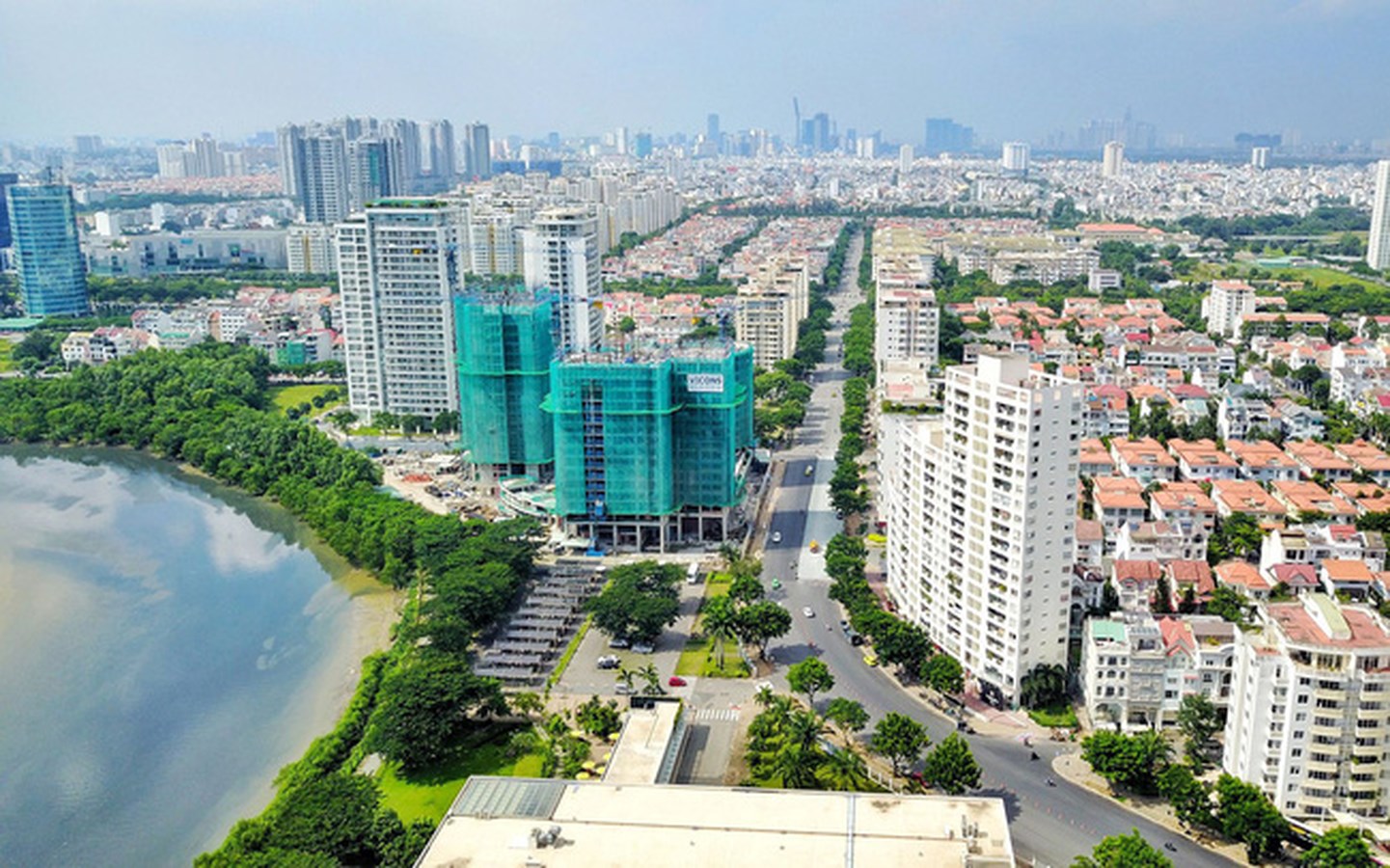
The slowdown of Vietnam’s real estate market in the first months this year is attributed to the limited bank credit sources.
Credit for the real estate sector has been tightened and is getting tighter, said Mr Nguyen Tran Nam, Chairman of the Vietnam National Real Estate Association (VNREA).
State Bank of Vietnam (SBV) has set limits for banks’ loans to be disbursed for real estate investments. The aim is to restrict the funding of high-end real estate projects.
In particular, credit growth in property sector has fell from 18 percent in 2016 down to only 5 percent last year.
But experts and realtors have called for SBV to rethink the plan, saying that the limitations would impact the property market, which is cooling down.
The diminishing credit flow into the real estate sector has greatly affected the operation of the market, as most capital is sourced from banks, Mr Nam pointed out.
The property market in 2019 would meet with difficulties caused by new policies, including the request to re-examine real estate projects, Nguyen Quoc Hiep, Chairman of GP Invest.
Once the real estate market slows down, industries such as steel, cement manufacturing and interior decoration will bear the influence, which will affect Vietnam’s GDP.
He suggested carrying out research on how the policy would affect the macro economy, warning that some cities and provinces are likely to raise the land prices.
An analyst pointed out another risk: the decrease in supply would increase the land price and the market may see a property bubble again.
He said: “An overly hot market would lead to a bubble, while overly cold market will not support GDP.”
The HCMC Real Estate Association (HoREA) also pointed out challenges for the market. A number of real estate firms are at risk of going bankrupt because of unstable and unpredictable policies.
Meanwhile, the real estate market is shrinking because of the decrease in number of projects. The short supply and high demand would push the prices up.
The HCMC real estate market has been declining since March 2017, HoREA said. The market scale decreased by 34 percent in 2018 compared with 2017. In Q1 2019, the number of projects approved by the city construction department fell by 67 percent.
The number of apartments in supply is 57 percent lower than the same period last year, Savills said.
For that reason, the real estate association believes the tightening of real estate credit would create a chaotic market.

Realty frims should find prestigious and competent foreign firms and investment funds to work with.
Encouraging the development of lower-end market segments is necessary, Nguyen Van Dinh, Deputy secretary general of the Vietnam Real Estate Association. However, to do this, it won’t be necessary to “sacrifice” the high-end segment which now attracts foreigners who come to Vietnam to live and work.
He said that there is no sign of abnormal price increases in the real estate market in general and the high-end segment in particular, so there is no need to apply measures to limit credit.
Chairman of the Ho Chi Minh City Real Estate Association (HoREA) Le Hoang Chau suggested property businesses ensure business efficiency and prepare land stock, while focusing on their project’s quality, progress, and transparency.
He added realty frims should find prestigious and competent foreign firms and investment funds to work with.
Less dependence on credit loans is also a chance for the sector to restructure, Mr Chau noted. He suggested businesses should reform their capital sources for sustainable and transparent development.
Enterprises can seek other sources of capital via merger and acquisition deals or share issuance, said Nguyen Van Duc, Vice Director of Dat Lanh real estate company.


















